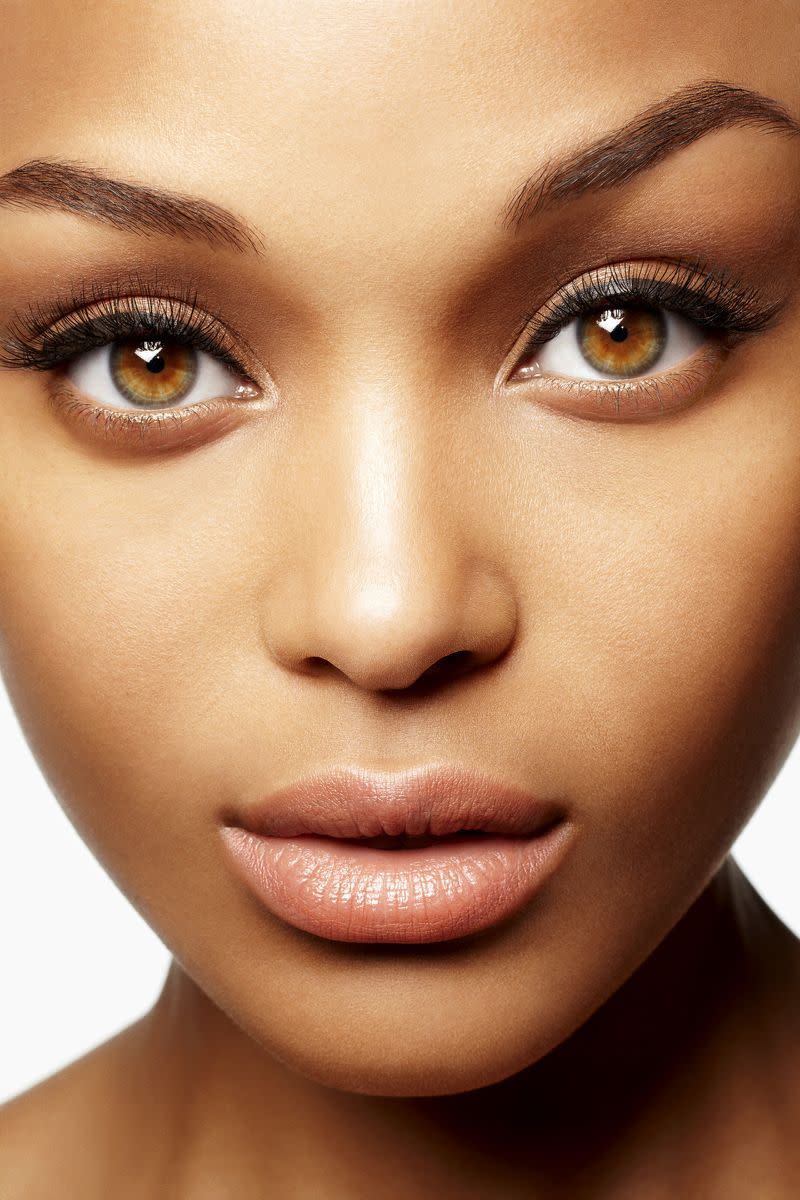What's Your Myers-Briggs Skin Type?

Knowing your skin type could resolve problems you don’t even know you have. (Photo: Arthur Belebeau/Trunk Archive)
Personalized skincare products are coming at us from every direction, but so far none have provided us with unique regimens as precise as the Skin Type Solutions test. If Myers and Briggs were dermatologists and skincare gurus instead of psychologists, they probably would have come up with something like this. Analyzing your skin on four different levels and providing 16 different skin type diagnoses, chances are you’ll find something wrong with your current routine.
The diagnosing process involves extensive questioning of patients about their habits and their skin’s tendencies, then taking extremely high-def photos of the patients’ skin and analyzing their current regimens for changes. If you can’t make it out to Miami where Dr. Leslie Baumann started the Skin Type Solutions program, diagnose yourself below.

Dr. Baumann’s skin type solutions chart. (Photo: Skin Type Solutions/Dr. Leslie Baumann)
THE TEST
DRY – OILY
Studies show that people often misinterpret whether their skin is dry or oily, and tend to moisturize and cleanse incorrectly as a result. Instead, think about how your skin reacts to products. A few hours after washing your face and applying no products, take a look at your skin to determine whether your skin is dry or oily. If there are areas of your face that feel rough, flaky, ashy, or tight, you have dry skin. If your skin is shiny and reflective, or even hydrated with no light reflection, your skin is oily.
SENSITIVE – RESISTANT
Do you have issues with breakouts, redness, rashes, flushes, rosacea, or itchiness? Consider your skin’s reaction to skincare products such as cleansers, lotions, sunscreen, toners, and makeup. If products, exercise, alcohol, or spicy food cause reactions or inflammation, you may have sensitive skin. Also think about family members’ skin – does anybody in your family have atopic dermatitis, eczema, asthma, or allergies? If so, you may be more prone to sensitivity.
Related: Think You Have Sensitive Skin? You Probably Don’t
PIGMENTED – NON-PIGMENTED
What are your melanin levels like? Melanin produces darker skin tones and helps you tan rather than burn. It also develops freckles, dark patches, and dark areas after trauma to the skin. If you have any dark patches or spots, any freckles in areas regularly exposed to sun, have been diagnosed with melasma, or anybody in your family has a history of melanoma, you may have pigmented skin. If you don’t get dark spots and your skin doesn’t significantly darken in the sun, your skin is non-pigmented.
WRINKLE-PRONE – TIGHT
Your skin’s tendency to wrinkle can be determined by your exposure to sun, history of tanning and smoking, your eating habits, and the way your parents and grandparents’ skin aged. You may be more wrinkle-prone given your ethnicity and the natural color of your skin, but environmental factors can also play a role and Dr. Baumann believes that you have the power to change your wrinkle-prone skin to tight skin with healthy habits.
THE DIAGNOSIS
Determine where you fall on each of the four scales and read up on the characteristics of your skin type. You may discover a few things you didn’t know about how to balance your skin’s different conditions.
Related: How to Balance Your Chakras for Better Skin

Solutions for your skin type. (Photo: Kenneth Willardt/Trunk Archive)
THE PRESCRIPTION
Is your current skincare routine treating issues that you don’t really have? If so, it could be worsening the issues you should be treating. According to Dr. Baumann, your skin has a delicate balance, which is why it’s important to understand your skin type when buying products and reading ingredient lists.
Dr. Baumann has specific product suggestions for each skin type on her website, and her book can give you more information about your personal diagnosis. She is sure to recommend the best of the best when it comes to ingredients, sustainability, prices, and positive feedback from her patients; but if you’re picky about your brands, look out for products containing the ingredients suggested for your skin type, and be wary of products that don’t treat your skin’s particular characteristics. Even if you’ve used a product forever, it may be doing more harm than good.
Read This Next: The Allergic Girl’s Guide to Beauty Products
Let’s keep in touch! Follow Yahoo Beauty on Facebook, Twitter, Instagram, and Pinterest.

